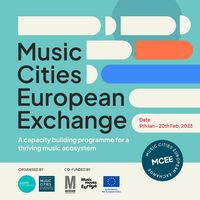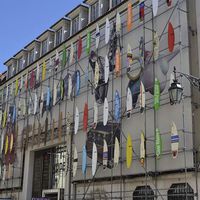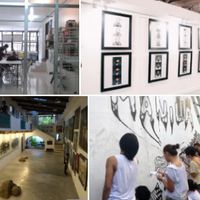On creating Bangladesh’s music ecosystem
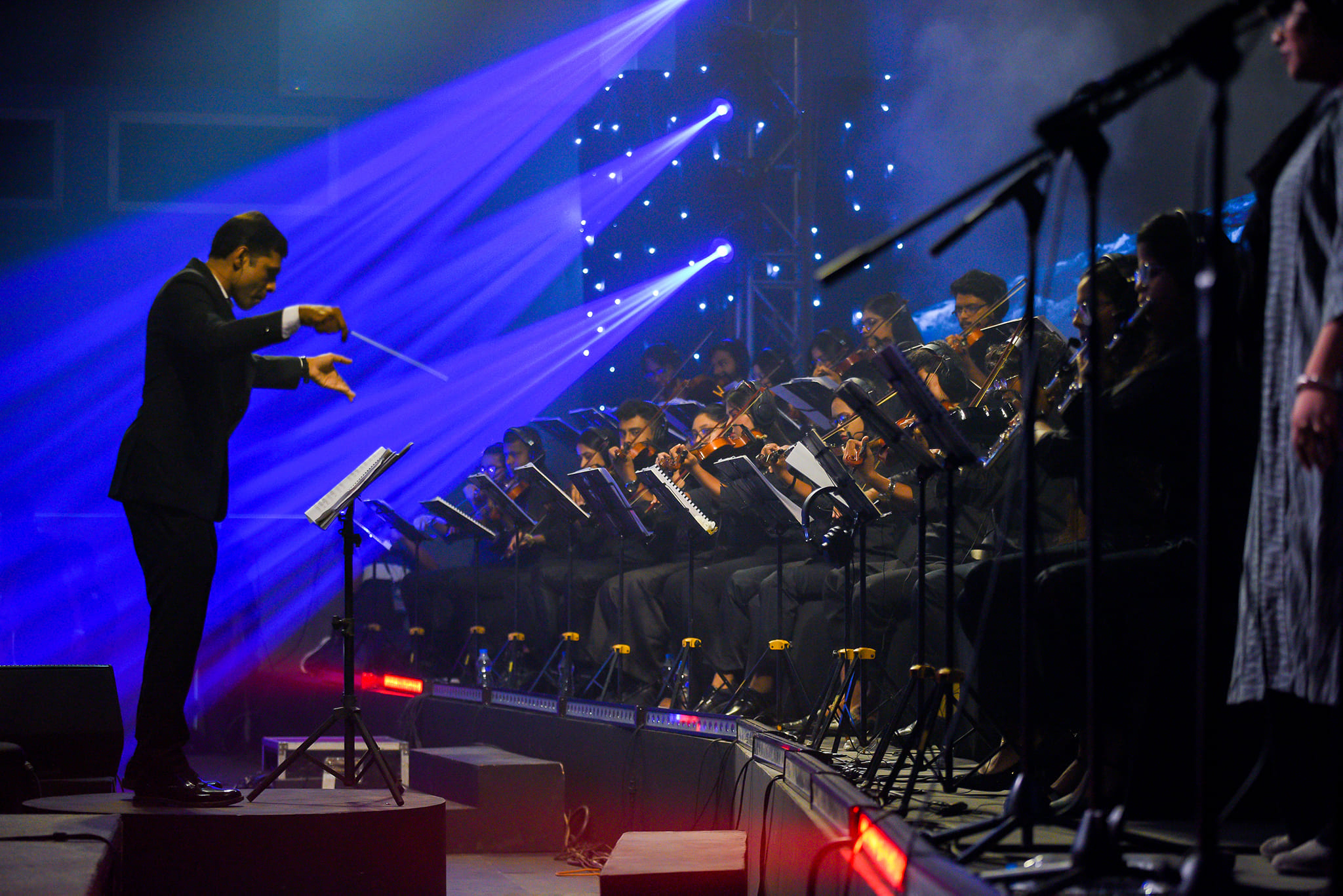
As part of culture360's ongoing Call for articles 2023, Khan Mohammad Faisal explores the challenges faced by Bangladesh's music industry and outlines essential steps to create a vibrant music ecosystem. From infrastructure development to adapting to the digital landscape, nurturing skilled management, and leveraging the connections between music and tourism, these must-dos can pave the way for a thriving music industry in Bangladesh, contributing to economic growth and cultural development.
Bangladesh's music industry is in turmoil for all the right reasons and faces all kinds of challenges. These challenges include a lack of infrastructure and organisational support, limited exposure, and international recognition. However, by implementing the right policies and initiatives, Bangladesh has immense potential for a thriving music industry. This article summarises the must-dos to create a circular economy and build a value economy framework to solve the challenges.
Musical cultures at the grassroots level play a crucial role in making cities a better place to live. Local music scenes contribute to a city's cultural fabric, fostering community and pride. By supporting and nurturing these organic developments, Bangladesh can build a vibrant and thriving music industry from the ground up.
Here is an essential list:
1) Infrastructure
"Without the overall scope to get gig opportunities, aspiring musicians are left stranded in their pursuit of a full-time music career. We need to create a supportive ecosystem that nurtures talent and provides ample avenues for artists to showcase their skills." - Shoummo Saha, Music Producer/DJ
Dhaka and other cities lack dedicated music venues. It is astonishing that a city with a population of over 15 million, like Dhaka, does not have a single dedicated music venue capable of accommodating an audience larger than 100. It is crucial to create dedicated music venues of varying sizes. These venues should have optimal acoustics, comfortable seating, and modern facilities to enhance the audience's experience.
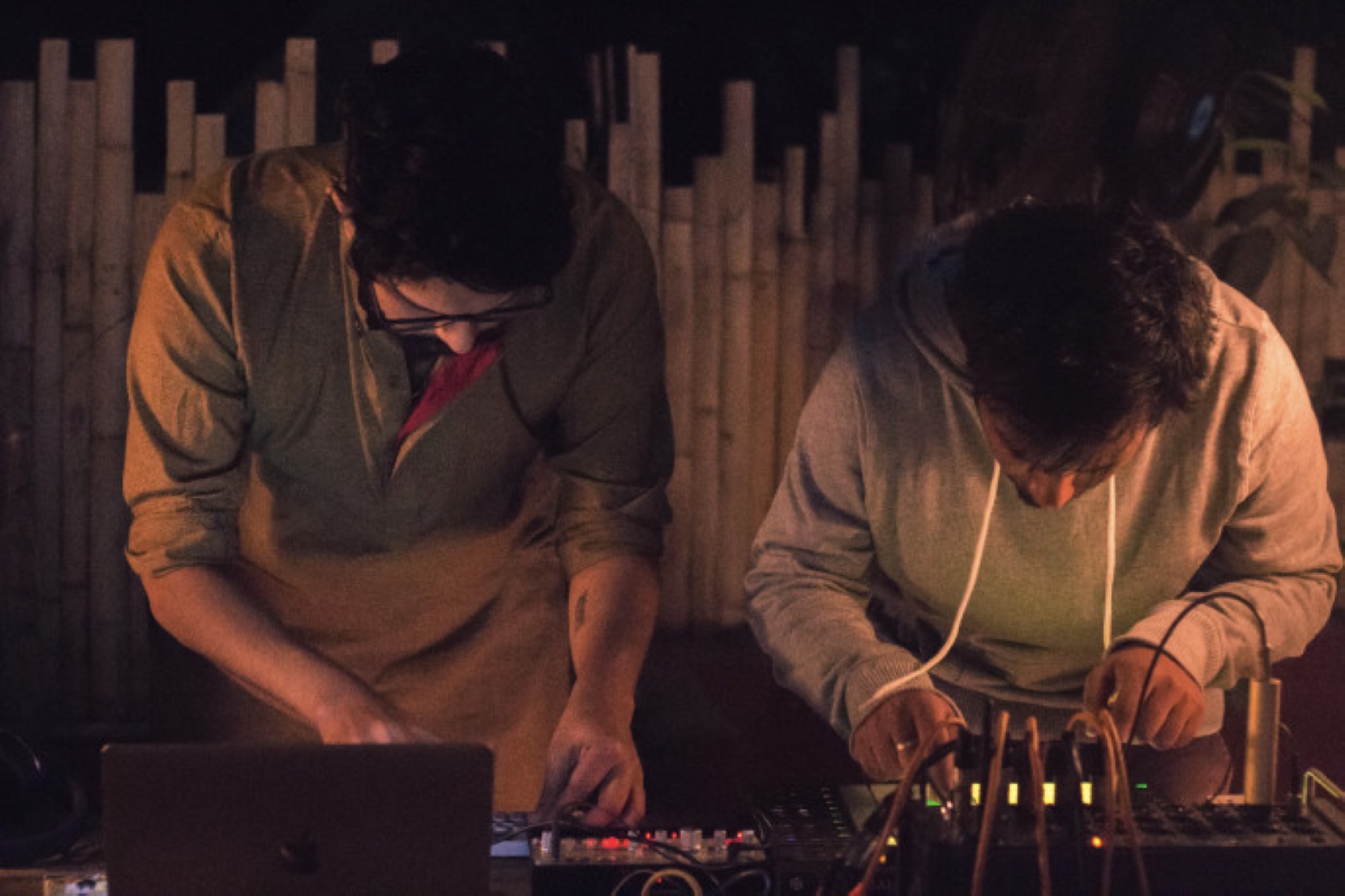
1. Electronic Session at Jatra Biroti with Shoummo Saha and After Art © Jatra Biroti
2) Adapting to the changing media landscape
The rapidly evolving media tech landscape poses a key challenge for Bangladesh's music industry. In today's digital age, music consumption and distribution has changed significantly. To adapt to this changing landscape, Bangladesh needs to adopt institutional frameworks for music releases, music publishing, and facilitate country specific International Standard Recording Codes (ISRC) via a national agency. These frameworks will ensure proper registration and protection of artists and their works, allowing for easier distribution and monetisation of music.
3) Skilled management
To effectively develop the music industry, a more sophisticated managerial class is needed. This class of tech-savvy individuals will play a crucial role in organising concerts, managing artists' careers, promoting their work, doing PR work, planning festivals, and more. There is a huge talent gap in this domain, as these roles lack the recognition needed to attract tech-savvy individuals. This shortage affects all creative sectors. By investing in music education and training programmes, Bangladesh can create opportunities for youth and harness their talents to build a vibrant music industry.
International arts and culture and music trade organisations produce resources that can be translated into the local language and adapted to reflect Dhaka's context. It is imperative to have shared resources for stakeholders that disseminate existing know-how and share long-term objectives as ideas first.
4) Connecting tourism and live music
"Our dynamic artists can captivate the world if we connect the grassroots to the music industry and art tourism. Whenever I perform internationally, I see that our unique tone, tenor, and voice engage in a big way. What we need is a more systematic approach to that – music festivals, concerts, and cultural events." - After Art, Sound Artist and Composer
The music industry should have an inextricable connection with the tourism industry, as cultural capital cannot be substituted. Music attracts tourists and enhances their cultural experience. By promoting music festivals, concerts, and arts events, Bangladesh can leverage its rich musical heritage to boost tourism and economic growth. Understanding the synergy between music and tourism, as seen in cities like London, Berlin, and many others, is imperative.
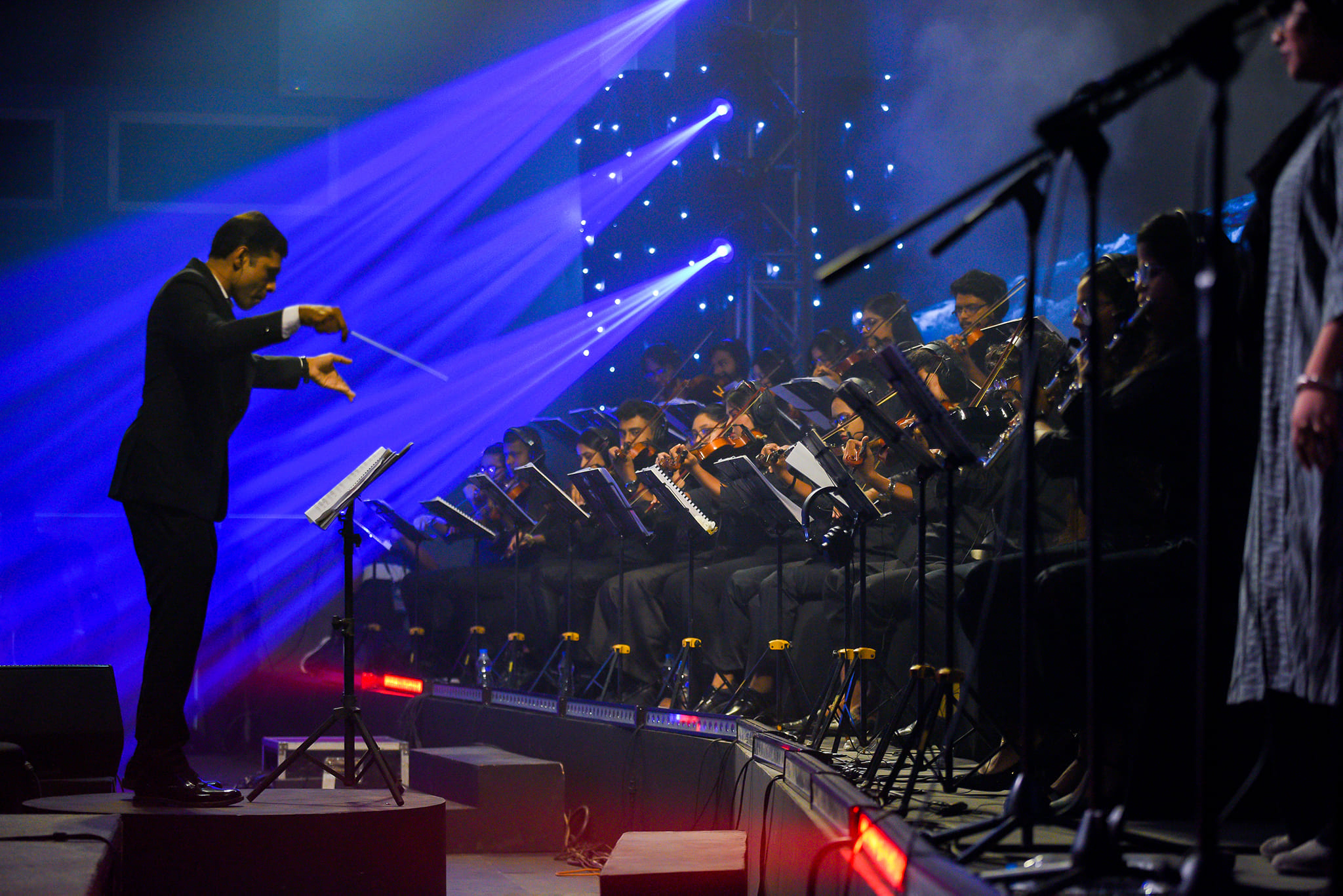
2. Violinist and composer Shariful Islam with Dhaka Symphony Orchestra © Bayezid Bin Waheed
Analysing policies regarding live music in other countries can provide valuable insights. Bangladesh can adopt sustainable and human-centred design principles when formulating live music policies. This includes ensuring venues are built with climate-friendly features, promoting inclusivity and accessibility, and providing a conducive environment for artists in both urban and rural areas to perform and engage with audiences.
The government and relevant civil societies can form bodies to partner with local and international private firms with the necessary expertise. This will streamline processes and minimise bureaucratic red tape to proactively help the live music industry. This approach will make the industry more agile and responsive to artists' and event organisers' needs. Initiatives may include assisting with the formation of trade associations for all kinds of music-related companies, enabling them to organise and advocate for incentives like tax breaks and subsidies, as well as conduct research to identify priority projects.
Moreover, the Bangladesh government should not hesitate to seek help from cultural and music trade organisations like the Goethe Institut, Pro Helvetia, The British Council and International Federation of the Phonographic Industry (IFPI). These organisations have been instrumental in providing support and access to artists worldwide. Collaborating with such institutions can facilitate knowledge sharing and capacity building within the governmental bureaucracy.
Introducing legislation like the UK's Live Music Act is critical and should be the long-term objective for stakeholders. This act promotes live music by reducing regulations and simplifying licensing processes. By adopting similar policies, Bangladesh can create an environment where event organisers and entities do not see law and enforcement as hindrances to cultural development.
Looking at a similar developing country with a comparable economy and population size, Nigeria has much to teach us. It has one of the most robust music industries on the African continent and is a massive economic force that is rapidly growing. The Central Bank of Nigeria’s ‘Creative Industry Financing Scheme’ tells us that the Nigerian government is a serious stakeholder.
Festivals are essential for showcasing grassroots artists to larger audiences and gaining international attention for the artists, the hosting city, and the country. If the government supports independent festivals, designed and hosted by independent organisers based on their merits, they will catalyse the overall ecosystem towards a circular economy.
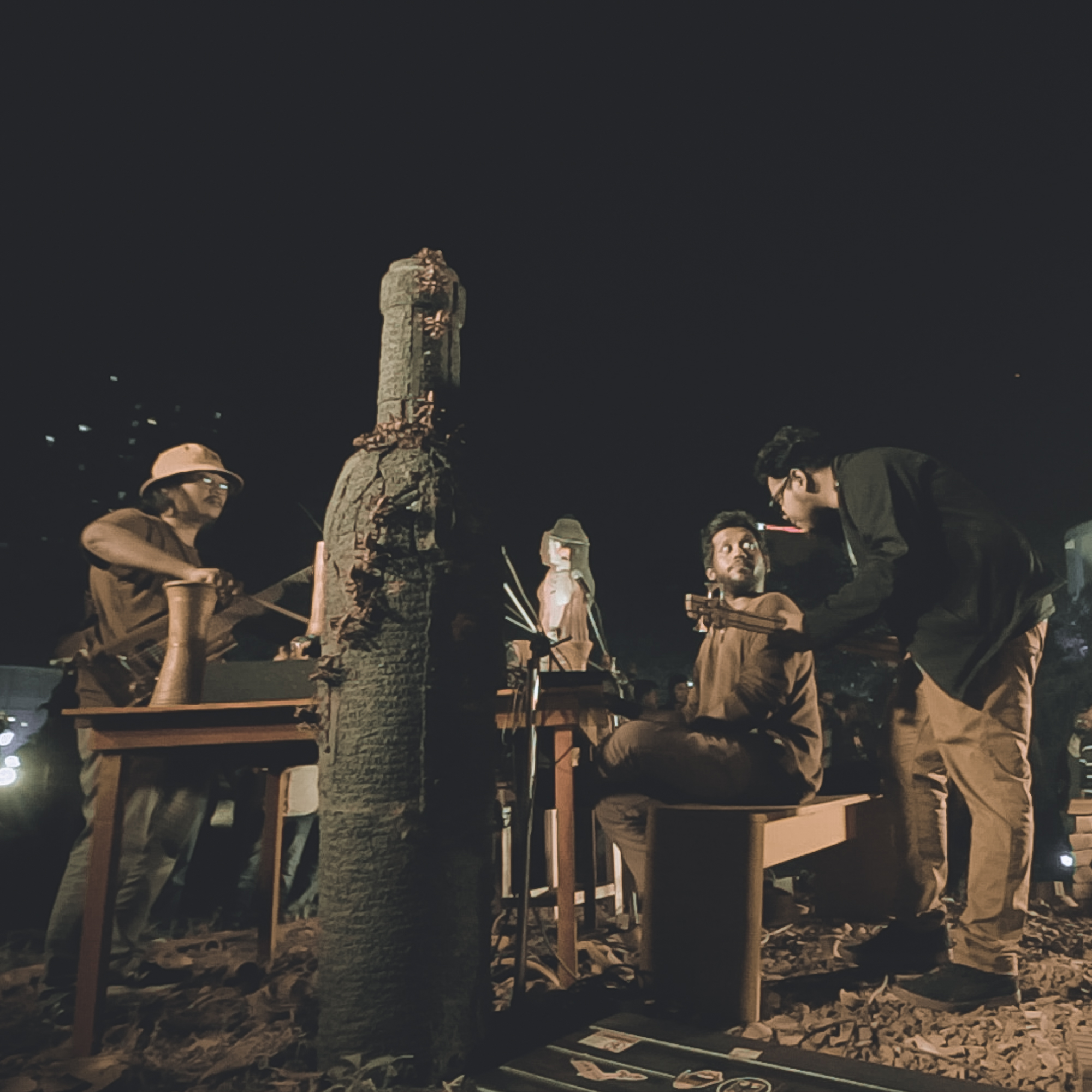
3. Akaliko X Jatiwangi at the Dhaka Art Summit © Sajaan S Alam
In conclusion
As Bangladesh seeks to become a higher middle-income country through diversification of industries, tourism, and for building soft power and country branding, all aspects of music must be investigated. To thrive, it needs venues, local digital platforms for media, and the right blend of skill sets and pragmatism.
Cover Image: Violinist and composer Shariful Islam with Dhaka Navy Symphony Orchestra © Photo: Bayezid Bin Waheed
Read also:
- ASEF culture360's Contemporary Music: Tuning into Bangladesh report
- UNESCO Music Cities
- International Federation of the Phonographic Industry's Resources
About the Author
Khan Mohammad Faisal is a cultural practitioner, label A&R, curator, and music journalist from Dhaka, Bangladesh. Aside from managing Akaliko Records and the artist collective, he is a music producer and arts project manager. He recently travelled to Switzerland to learn about its music scene. He is currently focused on establishing international networks between festival organizers, music venues, and promoters to facilitate Bangladeshi artists' management abroad and looking for ways to work on innovative media projects.
He has previously written for Border Movement, Norient, beehype.
Similar content
deadline
28 Nov 2022
posted on
19 Sep 2014
deadline
06 Jan 2024
posted on
19 Jul 2023

